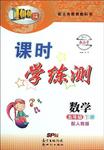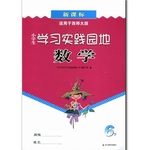题目内容
Nowadays,much of the profit of a business—sometimes the whole of its success—depends upon the use of the odds and ends.The odds and ends are various small things,which are left over when the main things are produced.But they possess a real value of their own.
If a business,big or small,looked down upon these odds and ends,it would mean a big difference in the amount of the benefit of the business.Take a meat factory for instance,there are countless odds and ends—bones and hair,which can be made into glue and rope to increase its profit greatly.
Then,if we are college students,what about our odds and ends—the odd moments?Take time for example.Every one of us has the exact same amount of it.Everyone’s success or failure depends on the use of their time.But everyone uses the time more or less in the same way.However,why many great men in science or art have made huge successes for themselves in the world?Because they have made best use of their odd moments.Thomas A.Edison,never allowed his odd moments to slip by.He thought,planned,and tried his inventions.He always worked twenty hours out of each twenty?four.His inventions made him famous all over the world,and provided valuable wealth for the human beings.
So,remember this axiom:busy people always find time? for everything.However,people with great spare time find time for nothing.Is it very strange?Not at all!The question is how to gather up fragments of time and make full use of them.As many big businesses have found,the real profit is in using the odds and ends.We also must do in this way to make best use of our odd moments and manage to be successful in something we do.
1.What are odds and ends?
A.They are nothing useful.
B.They are very small,but valuable things.
C.They are the main things factories produce.
D.They are odd moments students refuse to gather up.
2.Why should the odds and ends be made full use of?
A.Because they often determine success or failure.
B.Because they can only be found by successful people.
C.Because they are various small things people don’t want.
D.Because they are useless things left over.
3.The underlined word axiom in the last paragraph means________.
A.a statement given by famous people
B.a statement accepted as true
C.a statement that can be argued
D.a statement accepted in scientific field
4.Which of the following statements is TRUE?
A.The profit of all companies depends on the odds and ends.
B.In some way,big meat companies can ignore some small things,such as bones.
C.College students only make full use of their spare time before exams.
D.Many successful men are good at using the odds and ends.
1.B
2.A
3.B
4.D
【解析】
1.
解析 推理判断题。通读全文可以推断出,odds and ends指的是“虽小,但却很有用的东西”。
2.2】 A
解析 推理判断题。由文章中列举的事例,以及第一段和最后一段内容可以推知,零星的东西往往是事情成败的关键。
3.3】 B
解析 词义猜测题。零散时间的利用合理与否关系到一个人是否能够成功,成功人士善于找时间并充分利用零散的时间,人越忙碌越会找时间、挤时间。因此结合语境可知,该词意为“不争的事实,被众人所接受的事实”。
4.4】 D
解析 细节理解题。本题由文章中作者所举的爱迪生的事例可以得出。成功人士成功的秘诀往往在于擅于充分利用零星的东西和点滴时间。

 百年学典课时学练测系列答案
百年学典课时学练测系列答案 仁爱英语同步练习册系列答案
仁爱英语同步练习册系列答案 学习实践园地系列答案
学习实践园地系列答案